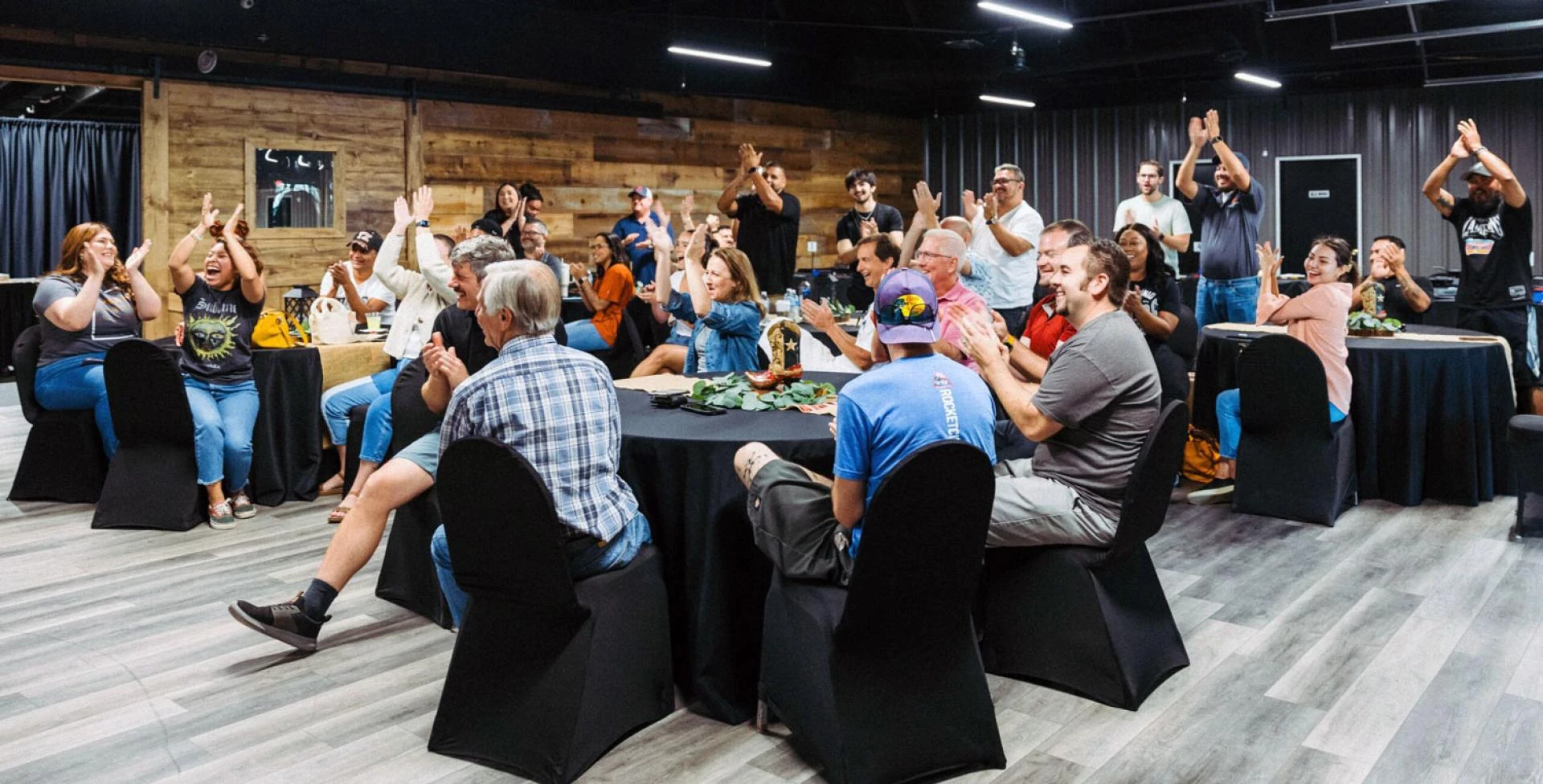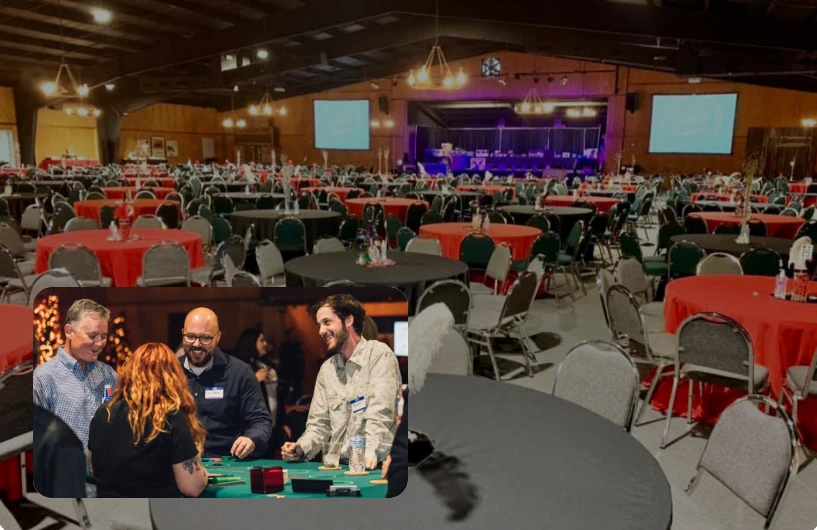Corporate retreats provide an ideal chance to break the monotony and renew team ties and organizational objectives. But one key decision that heavily determines the success or otherwise of a retreat is choosing the right corporate retreat venues. A perfect location sets the tone, enables your goals, and helps your team return refreshed and motivated. This is the guide to properly selecting the best location for your next corporate retreat.

Finding the Ideal Corporate Retreat Venue
Here are the following key factors to consider:
Define Your Goals and Objectives
Before clicking through picture-perfect resorts or charming lodges, define the purpose you want to achieve from your retreat. Are you trying to drive creativity, overcome internal struggles, strengthen collaboration, or even reward your team? Various goals have different settings, so what will work for a strategic planning session may not be suitable for a creative brainstorming getaway.
Make the atmosphere of the place consistent with the intention of your retreat. For instance, a quiet mountain lodge’s aptness for focused discussions is surpassed by that of a beachfront retreat, where you can indulge in a reward-based or relaxing retreat. The Journal of Event Management reported that the emphasis towards aligning retreat objectives with the selection of the venue notably impacts the success of the corporate events.
Consider Accessibility and Travel Time
It doesn’t matter how much you earn; time is money in the corporate world. Select a place that is convenient for your team and easily accessible, preferably within a two—or three-hour drive. Please take into account the proximity of the airport, road conditions, and the presence of transportation.
Evaluate Facilities and Amenities
Accommodation apart is what an ideal venue should provide. Check if it includes:
- Meeting rooms with A/V capabilities
- Reliable Wi-Fi
- Breakout areas
- Recreational activities (e.g., hiking, spa, team-building workshops)
- On-site catering or dining options
Inquire whether there are customizable packages for corporate groups. An extensive guide by The Offsite Co emphasized the availability of important amenities like A/V-equipped meeting rooms, trustworthy WiFi, and breakout areas that are important for a productive retreat.
Assess Team Size and Accommodation Needs
Make sure that the venue will fit your entire team. From casual to professional, whether it’s cabins for a shared vibe or reserved rooms for personal space, accommodation counts a lot for comfort and morale.
Be sure to book early so that you can select a room configuration that matches your group size and dynamics.
Budget Wisely
Retreats can be expensive, but they needn’t be. Establish a budget and contrast the costs of venues with the accommodation and food expenses, mode of transport, and activities. Value over luxury—what really counts is a supportive atmosphere for growth and contact.
Think about low-season venues because this will help save on costs.
Prioritize Customization and Flexibility
All teams are unique, and the one-size-fits-all approach fails most of the time. Find unique corporate retreat locations that are willing to accommodate activities, calendar meals, and schedules. A flexible venue partner will make all the difference between a typical trip and a memorable expedition.
For your retreat agenda, consult the venue beforehand to ascertain whether it can accommodate your needs.
Look for Team-Building Opportunities
An ideal corporate retreat location should allow not only work but also meaningful interaction. See if they have guided team-building programs or places for group events such as cooking classes, outdoor games, or workshops. Nature-oriented venues usually promote organic bonding because of shared adventure.
Think About the Local Environment and Culture
The place itself can sometimes motivate your team. A natural beauty or cultural significance bordering a venue can be a wonderful background for creativity and interaction. To spice up your retreat, add some local experiences, such as cultural tours or culinary classes.
Gather Feedback After the Retreat
Never should you end the retreat without any insights. You should discuss with your team on solutions that worked, what failed, and what could have been better. The feedback ensures that future retreats are highly effective and streamlined to meet the preferences of the team. Also consider the digital surveys, or quick debriefs, evaluating the venues, activities, experience, and accommodations. The insights from Unbridled reveal that the surrounding space of the retreat venue is playing an integral part in building collaborations and creativity.
It helps to reveal that the inputs matter, contributing to future planning experiences. Evaluating the feedback can help recognize the often overlooked pain points or any unexpected wins that can redefine future events. Any feedback loop promotes the consistent improvements that every retreat gets transformed into a learning opportunity for the participants and organizers.

Final Thoughts
Choosing the right corporate retreat venues can make the difference between an ordinary and an extraordinary experience. By considering logistics, goals, budget, and team dynamics, you will establish a base for a meaningful and pleasant experience. Remember, a successful retreat is not only about location but also about selecting a place that is in congruence with your team’s needs and your company’s vision.


